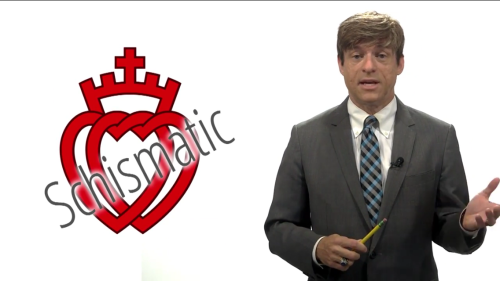
On today’s Vortex Mr.Voris speaks upon Rome not condemning specific issues of our time. My only question is this: why target the SSPX since they are faithful to the Church’s teachings and openly condemn the same errors in which you are protesting against? They recognize the current pontiff to be the Pope, so aren’t we on the same side here? In fact, why not have the SSPX explain themselves on your Mic’d up programs? Or why not have a debate with one of their priests to prove them wrong? I’m sure you would get a lot of views.
Also, are you not aware that the whole “SSPX is Schismatic” is modernist propaganda in which is used against the Society to persecute them? Talk about Ecumenical dialogue of Vatican 2, in which you defend as a infallible council. If resisting the Pope due to heresy is schismatic then why be an advocate for Cardinal Burke when he made it clear that he would also resist Pope Francis if he pushes for the innovative and heretical doctrines of the modernists at the next “extraordinary synod on the family”? It doesn’t make any sense to me. Is it because Archbishop Lefebreve “illicitly” consecrated bishops that you are against the society?
Cardinal Castillo Lara – President of the Pontifical Commission for the Authentic Interpretation of Canon Law & President of the Disciplinary Commission of the Roman Curia – in the Italian newspaper ‘La Republica’ on July 8, 1988 states the following:
“The act of consecrating a bishop [without a papal mandate] is not in itself a schismatic act.”
There you have it, Mr Voris, a Cardinal of the Church in which is an expert on the proper interpretation of Canon law making it very clear. I would assume he is also “schismatic” just as anybody else who attends their chapels or supports their mission, correct? I guess that leaves Ecclesia Dei out of the question since the Secretary of Pontifical Commission, Msgr. Camille Perl, stated on May 28, 1996 the following:
“In the strict sense you may fulfill your Sunday obligation by attending a Mass celebrated by a priest of the Society of Saint Pius X“.
Last time I checked Canon Law states you must attend a valid Mass within the Church to fufill your Sunday obligation.
– Caution, Jimmy Papist Moment –
– Ooo, ooo, let’s not forget what St. Robert Bellermine said about resisting heretical Popes!
“Just as it is licit to resist the Pontiff that aggresses the body, it is also licit to resist the one who aggresses the souls or who disturbs civil order, or, above all, who attempts to destroy the Church. I say that it is licit to resist him by not doing what he orders and preventing his will from being executed; it is not licit, however, to judge, punish or depose him, since these are acts proper to a superior.”
Thanks, Jimmy. Also: Innocent III explains that a pope can fall into heresy:
“The Roman Pontiff has no superior but God. Who, therefore, (should a pope ‘lose his savor’) could cast him out or trample him underfoot – Since of the pope it is said ‘gather thy flock into thy fold’. Truly, he should not flatter himself about his power, nor should he rashly glory in his honor and high estate, because the less he is judged by man, the more he is judged by God.
Still the less can the Roman Pontiff glory because he can be judged by men, or rather, can be shown to be already judged, if for example he should wither away into heresy; because he who does not believe is already judged.”
Pope Innocent III went on to explain, “In such a case it should be said of him: ‘If the salt should lose its savor, it is good for nothing but to be cast out and trampled underfoot by men’.”
Is this not what the society is doing, Mr. Voris? Let’s be honest, the Pope Francis pontificate is an absolute mess and the man on the throne of Peter speaks things that contradict the ancient Roman Catholic faith. Laudato Si’ is an good example in which he stated in Section 222:
“Christian spirituality proposes an alternative understanding of the quality of life, and encourages a prophetic and contemplative lifestyle, one capable of deep enjoyment free of the obsession with consumption. We need to take up an ancient lesson, found in different religious traditions and also in the Bible.”
Are not other religions false, Mr.Voris?





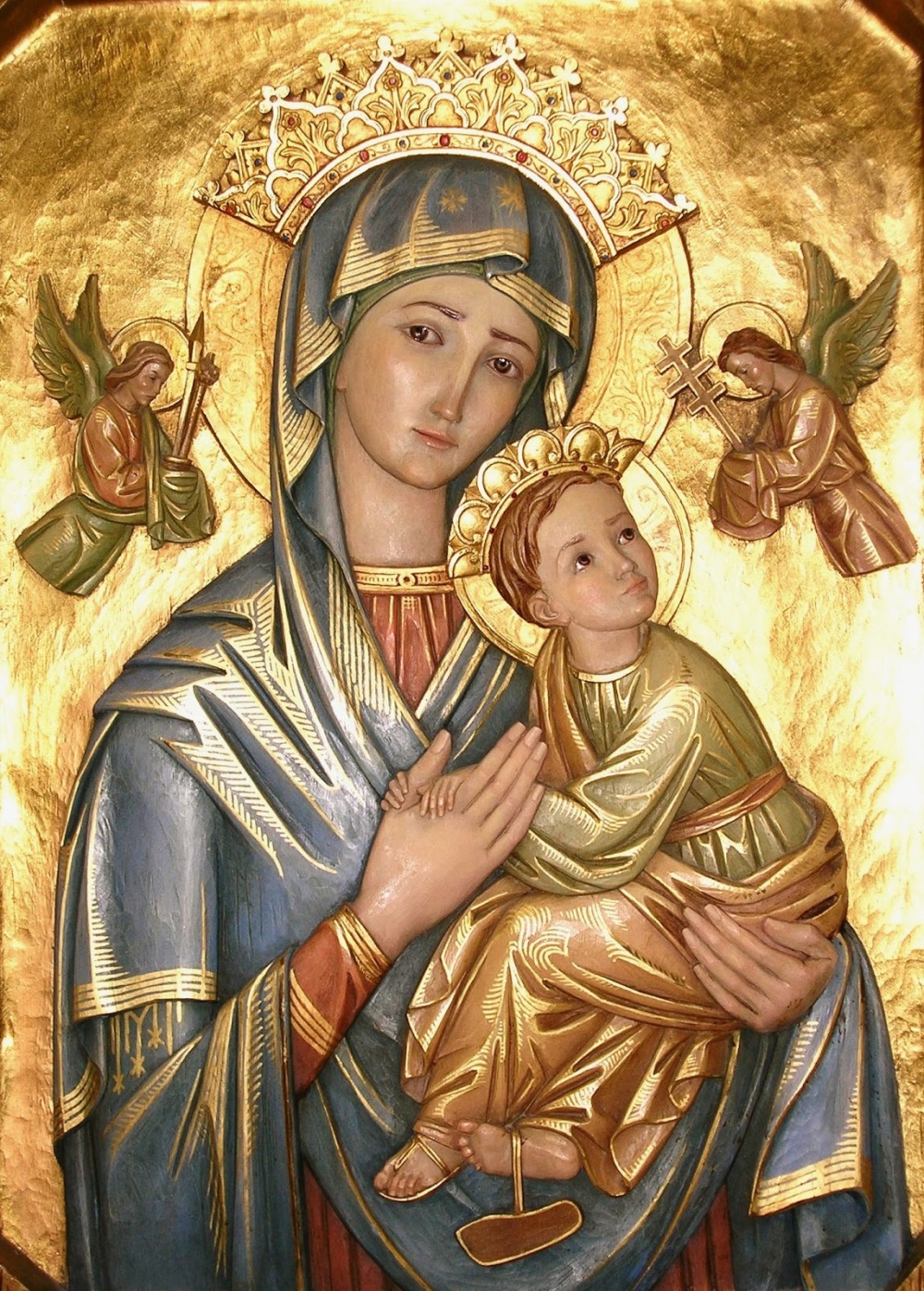
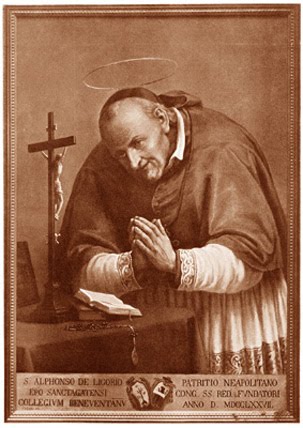

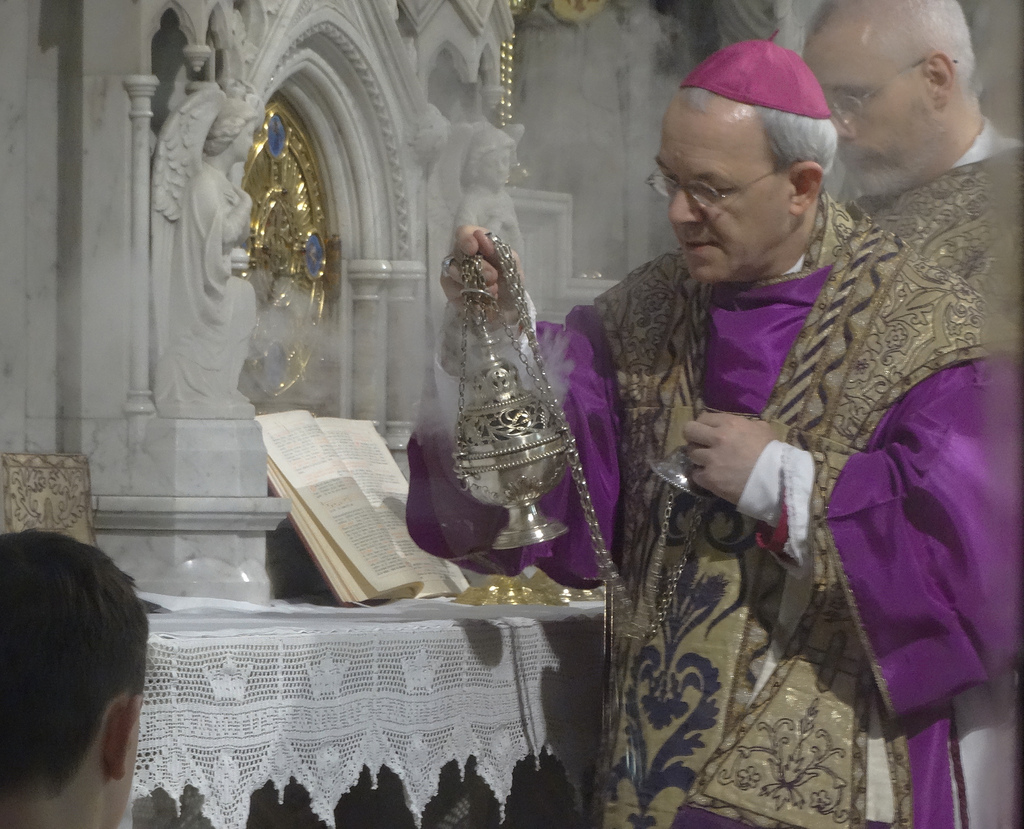




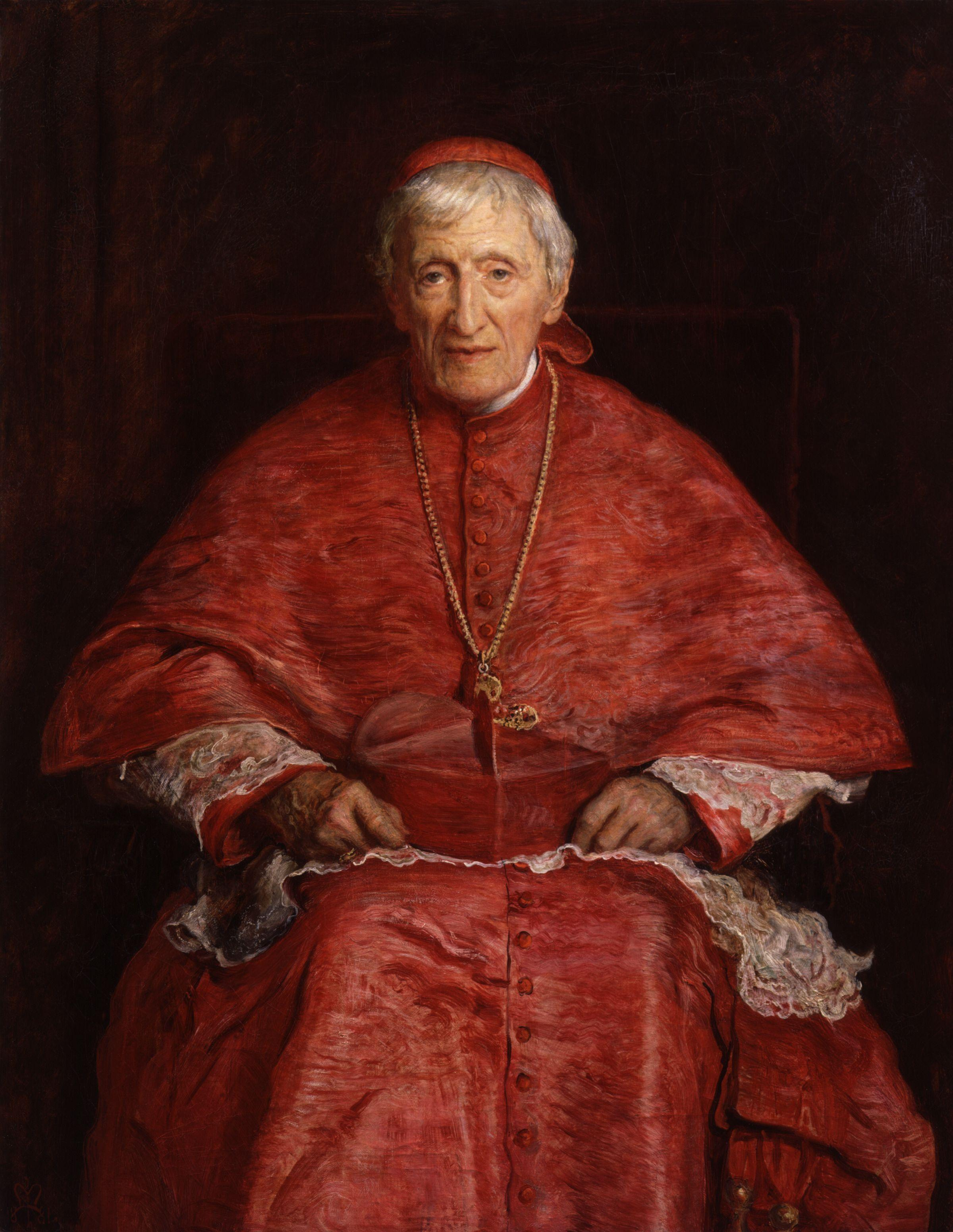

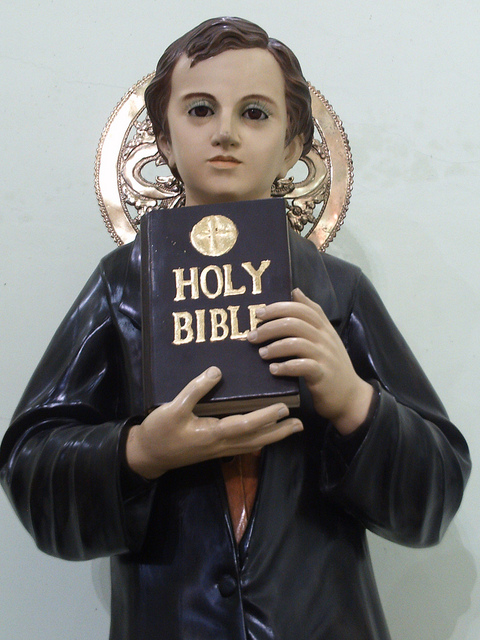



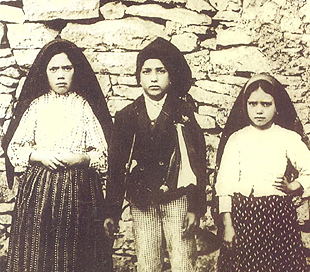
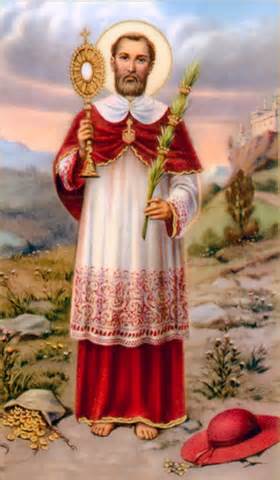

Michael Voris is a self-promoting fraud with all the depth of a Protestant born-again Christian. Since he has no mind of his own, and certainly not the mind of the Church, he is probably just repeating what he is told by his “spiritual director,” Fr. Paul Nicholson – you know, the priest who smeared Father Gruner’s reputation when he died, and the priest who was also instructed by his bishop to have nothing to do with Michael Voris. So to answer your question, it will not end until all the gullible people who are sending him money stop doing so.
LikeLiked by 2 people
Let’s not forget about Father Paul Nicholson stating that a sacrilegious black mass is more holy than a SSPX one. Anathema and blasphemy.
LikeLiked by 1 person
This consistent in-fighting between folks who should be on the same page is maddening. Christ prayed that we be as one. This constant mutual criticism of each other, indicates that we are not. As for instance, the current leaders at the Vatican have done more to scatter the flock than any in my learned memory. Certainly in my lifetime. I find Michael Voris sincere in his efforts to educate the lost sheep, however, though he comes down hard on wayward Bishops, as he should, his criticism stops when it comes to the Holy See, This Pope is becoming more of a left wing political advocate than the successor of Peter. The Global Warming hoax is just one highly toxic example. Christ himself warned of these times – that there will indeed be earthly catastrophes and Nations rising up against nations, of evil dominating good throughout the planet but not once did he speak of man’s indifference to “Climate change;” rather he laid the blame on man’s indifference to sin – on our turning away from God. A faithful Pope would make that – our rejection of God as the center post of his encyclical – but not this one! How do we assess for instance the Holy Father’s willingness sit with the vile Obama makes one wonder just what going on in his mind. Voris himself has made some very strong arguments himself against the Climate Change fraud. But the Pope who won’t give him the time of day to present his valid points of view. It is my understanding that we are obligated to follow the Pope on matters of faith and morals. Climate change does not meet that standard. What is going on in the Church today! Tradition vs Novus Ordo – Voris vs Remnant Press, Seda Vacatanists vs everybody else makes me want to throw up. I will never leave my Church because it is the true vine of Christ. But, in the name of all that is holy, why are we fighting with each other?
LikeLike
I spoke with Michael Voris by phone the day he launched his original apostolate to wish him well. And to caution him to keep a humble prayer life…lest he follow into error so many other Catholic laymen who set themselves up as “experts” on the Faith…or worse…as “savior”. Guess he didn’t take my advice.
Father Nicholson? He needs to spend less time online and more time on his knees in front of a tabernacle. Wonder if he knows where to find one?
Nicholson and Voris both are obviously under the influence of Satan. There is no other explanation for the evil they do and the ugly lies they tell. I find it difficult to work up any sympathy for either of them. Do they not have even one person in their lives who loves them enough to slap the living snot out of them until they wake up?
LikeLike
The SSPX does not recognize the Pope as the Supreme Pontiff. Both Fellay and his predecessor.
Regardless of what a cardinal says, Pope Pius XII confirms what the first Vatican Council decided.
46. “We teach, . . . We declare that the Roman Church by the Providence of God holds the primacy of ordinary power over all others, and that this power of jurisdiction of the Roman Pontiff, which is truly episcopal, is immediate. Toward it, the pastors and the faithful of whatever rite and dignity, both individually and collectively, are bound by the duty of hierarchical subordination and true obedience, not only in matters which pertain to faith and morals, but also in those which concern the discipline and government of the Church spread throughout the whole world, in such a way that once the unity of communion and the profession of the same Faith has been preserved with the Roman Pontiff, there is one flock of the Church of Christ under one supreme shepherd. This is the teaching of the Catholic truth from which no one can depart without loss of faith and salvation.”[17]
47. From what We have said, it follows that no authority whatsoever, save that which is proper to the Supreme Pastor, can render void the canonical appointment granted to any bishop; that no person or group, whether of priests or of laymen, can claim the right of nominating bishops; that no one can lawfully confer episcopal consecration unless he has received the mandate of the Apostolic See.[18]
48. Consequently, if consecration of this kind is being done contrary to all right and law, and by this crime the unity of the Church is being seriously attacked, an excommunication reserved specialissimo modo to the Apostolic See has been established which is automatically incurred by the consecrator and by anyone who has received consecration irresponsibly conferred. AD APOSTOLORUM PRINCIPIS.
Furthermore, your charges of “modernism” are so baseless that you reduce the heresy to that of a boogeyman. I would sincerely wish to see how the persons you mentioned fit the descriptions of PASCENDI DOMINICI GREGIS.
LikeLiked by 1 person
The SSPX does not recognize the Pope as the Supreme Pontiff. Both Fellay and his predecessor”
This is dishonest considering the fact that The Society of Saint Pius X prays for the Pope within the Roman canon, something schismatics remove such as Michael Celuarius has when he refused to submit to the Roman Pontiff. Also, let us quote from the Society of Saint Pius X website, shall we? Quoting the infallible magisterium on their page “Catholic principals” that it located in their Q&A session it states the following:
“If anyone then says that it is not from the institution of Christ the Lord Himself or by divine right that the blessed Peter has perpetual successors in the primacy over the universal Church…let him be anathema….
If anyone thus speaks, that the Roman Pontiff has only the office of inspection or direction but not the full and supreme power of jurisdiction over the universal Church, not only in things which pertain to faith and morals, but also in those which pertain to the discipline and government of the Church spread over the whole world…let him be anathema. (Vatican I, Dz 1825, 1831).
But it is opposed to the truth and in evident contradiction with the divine constitution of the Church to hold that, while each bishop is individually bound to obey the authority of the Roman Pontiffs, taken collectively the bishops are not so bound. (Leo XIII, Satis Cognitum)”
Henceforth, your statements are pure calumny and I am assuming you haven’t looked further in the matter, not to mention that Bishop Fellay was recently appointed by the Vatican. In regards to “Both Fellay and his predecessors”, do you mean His Excellency Archbishop Lefebreve, the founder of the Society of Saint Pius X? Archbishop Lefebvre always recognized the pope’s authority (proved by his consultations with Rome for a solution to the current problems) and so does the SSPX. (See for example, its support for Pope John Paul II’s Ordinatio Sacerdotalis against women priests.)
Archbishop Lefebreve on August 29, 1987:
“I beseech you to remain attached to the See of Peter, to the Roman Church, mother and mistress of all the Churches, in the integral Catholic Faith, expressed in the various creeds of our Catholic Faith, in the Catechism of the Council of Trent, in conformity with what you were taught in your seminary. Remain faithful in the handing down of this faith so that the Kingdom of Our Lord may come.”
‘Continuing…
“Regardless of what a cardinal says, Pope Pius XII confirms what the first Vatican Council decided.
46. “We teach, . . . We declare that the Roman Church by the Providence of God holds the primacy of ordinary power over all others, and that this power of jurisdiction of the Roman Pontiff, which is truly episcopal, is immediate. Toward it, the pastors and the faithful of whatever rite and dignity, both individually and collectively, are bound by the duty of hierarchical subordination and true obedience, not only in matters which pertain to faith and morals, but also in those which concern the discipline and government of the Church spread throughout the whole world, in such a way that once the unity of communion and the profession of the same Faith has been preserved with the Roman Pontiff, there is one flock of the Church of Christ under one supreme shepherd. This is the teaching of the Catholic truth from which no one can depart without loss of faith and salvation.”. From what We have said, it follows that no authority whatsoever, save that which is proper to the Supreme Pastor, can render void the canonical appointment granted to any bishop; that no person or group, whether of priests or of laymen, can claim the right of nominating bishops; that no one can lawfully confer episcopal consecration unless he has received the mandate of the Apostolic See.[18]Consequently, if consecration of this kind is being done contrary to all right and law, and by this crime the unity of the Church is being seriously attacked, an excommunication reserved specialissimo modo to the Apostolic See has been established which is automatically incurred by the consecrator and by anyone who has received consecration irresponsibly conferred.”
This is a valid quote and I credit you for trying, however, this doesn’t apply to what has occurred in 1988 with Archbishop Lefebreve.
This is because Pope John Paul II, as a material heretic, taught errors that contradicted the Catholic faith in which the Papal oath has condemned since he spoke of his personal modernist opinions rather than the true faith in which there is no salvation outside of. We have to remember that 1988 was also the same year in which the masonic Assissi event has taken place, something that is equivalent to a Unitarian service in which is demonic and heretical due to the doctrines of indifferentism, something false ecumenism supports. The doctors of the Church, as well as theologians, have always taught that if the Pope were to speak heresy he is to be corrected. If he refuses correction, he is to be resisted. This has occurred in the past, and paradoxically, history repeats itself. Therefore the “, not only in matters which pertain to faith and morals, but also in those which concern the discipline and government of the Church spread throughout the whole world” is an invalid argument in which you display since the previous Roman Pontiff spoke contrary to the faith.
“St. Thomas when he speaks of fraternal correction alludes to St. Paul’s resistance to St. Peter and he makes the following comment: “To resist openly and in public goes beyond the measure of fraternal correction. St. Paul would not have done it towards St.Peter if he had not in some way been his equal…We must realise, however; that if there was question of a danger for the faith, the superiors would have to be rebuked by their inferiors even in public.’ This is clear from the manner and reason for St. Paul’s acting as he did with regard to St. Peter whose subject he was, in such a way, says the gloss of St. Augustine, ‘that the very head of the Church showed to superiors that if they ever chanced to leave the straight and narrow path, they should accept to be corrected by their inferiors’ (St. Thomas IIa, lIae, q33, art 4, ad 2).
“The case evoked by St. Thomas is not merely imaginary because it took place with regard to John XXII during his life. This pope thought he could state as a personal opinion that the souls of the elect do not enjoy the beatific vision until after the Last Judgment. He wrote this opinion down in 1331 and in 1332 he preached a similar opinion with regard to the pains of the damned. He had the intention of putting forward this opinion in a solemn decree.
“But the very lively reaction on the part of the Dominicans, above all in Paris, and of the Franciscans made him renounce this opinion in favour of the traditional opinion defined by his successor; Benedict XII, in 1336.
‘And here is what Pope Leo XIII said in his encyclical, Libertas Praestantissimum, June 20, 1888: ‘If then, by anyone in authority, something be sanctioned out of conformity with the principles of right reason, and consequently hurtful to the commonwealth, such an enactment can have no binding force of law.’ And a little further on he says, ‘But where the power to command is wanting, or where a law is enacted contrary to reason, or to the eternal law, or to some ordinance of God, obedience is unlawful, lest while obeying man, we become disobedient to God.’
Upon the consecration of bishops by Archbishop Lefebreve, this cannot be declared equivalent to the quotation you have stated above because of the very fact that the consecrations were done due to emergency. Archbishop Lefebreve was continuously being delayed in regards Rome consecrating his bishops that Rome has promised, even by Pope John Paul II himself. Since he wasn’t getting any older and since the Church was and continues to be in a great crises, he had no choice but to consecrate the bishops in which canon law, even the new code, permits. The Code recognises emergency as a circumstance exempting Catholics from any penalty in case they have to violate the law (New Code 1323, paragraph 4), provided that the action is not intrinsically evil or prejudicial to souls; in this latter case the emergency would merely attenuate the punishment. But no punishment “latae sententiae” can affect someone who has acted in an emergency situation (New Code 1324, paragraph 5).
“Furthermore, your charges of “modernism” are so baseless that you reduce the heresy to that of a boogeyman.”
How so? Are not quotations from the Saints and the infallible magisterium enough? You aren’t being specific, especially to when it comes to my “charges of modernism”. I would be careful with your judgements.
“I would sincerely wish to see how the persons you mentioned fit the descriptions of PASCENDI DOMINICI GREGIS.”
Again, you aren’t being specific. Which persons? In this specific article, even though I was simply responding to the errors that Michael Voris has displayed when it comes to the SSPX being in schism? If you are addressing the Bishops that I have spoken of previously then I would love to prove it. God Bless!
LikeLike
The Society of St. Pius V, is Sedevacantist. The Fraternity of Jesus & Mary Society of Saint Pius X, Is NOT in the least bit Sedevacantist.
LikeLiked by 1 person
Are you Sed?
LikeLiked by 1 person
Not Even Close
LikeLike
Same brother. 🙂
LikeLike
“This is because Pope John Paul II, as a material heretic, taught errors that contradicted the Catholic faith in which the Papal oath has condemned since he spoke of his personal modernist opinions rather than the true faith in which there is no salvation outside of.”
Do you have evidence of this? Certainly according to PASCENDI DOMINICI GREGIS, he does not fit the bill for a modernist so don’t try that one. It would be intellectually dishonest.
“…the same year in which the masonic Assissi event has taken place, something that is equivalent to a Unitarian service in which is demonic and heretical due to the doctrines of indifferentism, something false ecumenism supports.” You should probably read Justin Martyrs Apologies. People thought he was a heretic for combining Platonism with Catholicism. Indeed, your argument echoes that of the Donatists who asserted that even the praying with other people in pagan temples, even though you were inwardly making oblation to Almighty God, were bound for hell.
” The doctors of the Church, as well as theologians, have always taught that if the Pope were to speak heresy he is to be corrected. If he refuses correction, he is to be resisted. This has occurred in the past, and paradoxically, history repeats itself.” There does not seem to be any other cases in Church history. Certainly Boniface VIII deserved censure for his attempts on Pope Celestine V but there is no evidence that he received any. If Boniface can remain pope after clandestinely forcing his predecessor to abdicate and so receive the Papacy by simony, how is Pope John Paul II a heretic for praying to God with some non-Catholics?
The greater proof you must provide is not only what makes the Pope a heretic but how Vatican II, where the definitions came from, could possibly err being protected by the Holy Spirit.
He had ever choice. Luther did too. He just lacked faith. If he had faith, he would have entrusted it to God’s providence. But he didn’t. He presumed to know more than the Almighty and consecrated them anyway. What necessity was there except a necessity born out of Fellay’s own ideas of the state of the Church? ” a person who acted coerced by grave fear, even if only relatively grave, or due to necessity or grave inconvenience unless the act is intrinsically evil or tends to the harm of souls;” The act of disobeying the Pope is intrinsically evil. It usurps the rights and wisdom especially endowed in the Petrine office.
LikeLike
Re: “Do you have evidence of this?”
“What we have just said must also be applied-although in another way and with the due differences-to activity for coming closer together with the representatives of the non-Christian religions, an activity expressed through dialogue, contacts, prayer in common…”
REDEMPTOR HOMINIS, Section 6, para. 3,
http://w2.vatican.va/content/john-paul-ii/en/encyclicals/documents/hf_jp-ii_enc_04031979_redemptor-hominis.html#-H
Compare that statement with:
“This being so, it is clear that the Apostolic See cannot on any terms take part in their assemblies, nor is it anyway lawful for Catholics either to support or to work for such enterprises; for if they do so they will be giving countenance to a false Christianity, quite alien to the one Church of Christ.”
POPE PIUS XI, MORTALIUM ANIMOS, Section 8,
http://www.papalencyclicals.net/Pius11/P11MORTA.HTM
LikeLike
Who is the “they” in MORTALIUM ANIMOS? Pius points them to be the Christians who desire unity, but at the expense of the Church. John Paul also says in Redeptor Hominis, BEFORE the passage you cite, “True ecumenical activity means openness, drawing closer, availability for dialogue, and a shared investigation of the truth in the full evangelical and Christian sense; but in no way does it or can it mean giving up or in any way diminishing the treasures of divine truth that the Church has constantly confessed and taught.” That was a little disingenuous, wouldn’t you say? Here is what he says after your quote. “It is a noble thing to have a predisposition for understanding every person, analyzing every system and recognizing what is right; this does not at all mean losing certitude about one’s own faith or weakening the principles of morality, the lack of which will soon make itself felt in the life of whole societies, with deplorable consequences besides.”
You act like a Bible-thumper, pulling the “call no man father” passage out of the context of all Scripture to condemn the Church. I believe you did it out of ignorance because to think you did so simply to maintain your position seems too monstrous.
LikeLike
Since no Scripture was quoted in my post it doesn’t occur to me how the accusation “Bible-thumper” applies to me.
Is it disingenuous of me to ask where, in any papal or Council document prior to 9th October 1958, will be found the term, “dialogue?”
Is it disingenuous of me to ask how “…prayer in common…” (REDEMPTOR HOMINIS, quoted above) fits with the following?:
“So, Venerable Brethren, it is clear why this Apostolic See has never allowed its subjects to take part in the assemblies of non-Catholics: for the union of Christians can only be promoted by promoting the return to the one true Church of Christ of those who are separated from it, for in the past they have unhappily left it.”
MORTALIUM ANIMOS, Section 10.
LikeLike
The word like is typically used to denote a comparison between two similar things. A grapefruit is like an orange, though they be of a different color.
It is disingenuous to take the words someone spoke and apply a meaning they–as contextual proof reveals–had no intention of expressing. Furthermore, what in Redemptor Hominis explicitly rejects the notion that Christian unity means unity with the Roman Church?
LikeLike
Was “Bible-thumper,” then, intended as a pejorative comment?
Please explain to me how you determined my quote from “REDEMPTOR HOMINIS” was taken out of context.
The portion of “REDEMPTOR HOMINIS” quoted in my comment does not explicitly reject “…the notion that Christian unity means unity with the Roman Church…” Such rejection would probably have qualified as formally heretical. However, you haven’t responded to my inquiry: How does “…prayer in common…” square with previous Church teaching?
LikeLike
Not perjorative. Merely likening the particular selection of textual evidence regardless of the author’s intent to frame an argument is remarkably similar to that of the typical WASP bible-thumper.
I determined it was taken out of context by quoting the context from which you took the quote.
It squares with Church teaching the same way Justin Martyr can pray in common to the Divine Logos with any pagan. Indeed, the concept of the Logos being the God the Stoics, despite their philosophy, knew not but worshiped is precisely what both John Paul II and the Council Fathers meant: to reject nothing that is true. There is one Truth and if other religions have some Truth, it must be THE Truth and so dialogue, debate, and such always seeks to reverence THAT Truth i.e. the Truth they actually got right.
LikeLike
It wasn’t necessary to explain to me that we accept the kernels of truth contained in Protestant teaching. However, please explain to me the point of “dialogue” on truths held in common:
“Going therefore, teach ye all nations: baptizing them in the name of the Father and of the Son and of the Holy Ghost.
Teaching them to observe all things whatsoever I have commanded you. And behold I am with you all days, even to the consummation of the world.”
St. Matthew 28:19-20.
Please explain to me how “…prayer in common…” (REDEMPTOR HOMINIS) can be squared with the Church teaching, “So, Venerable Brethren, it is clear why this Apostolic See has never allowed its subjects to take part in the assemblies of non-Catholics…” (MORTALIUM ANIMOS).
LikeLike
Pope Pius goes on, “for the union of Christians can only be promoted by promoting the return to the one true Church of Christ of those who are separated from it, for in the past they have unhappily left it.”
Pope John Paul says, “True ecumenical activity means openness, drawing closer, availability for dialogue, and a shared investigation of the truth in the full evangelical and Christian sense; but in no way does it or can it mean giving up or in any way diminishing the treasures of divine truth that the Church has constantly confessed and taught.” In no place does he say that the object of such openness and dialogue is to diminish the doctrine of the Church as some would be led to believe. Instead, it is euangelion, or the proclaiming of the Good News. The Good News of Christ, as Vatican II says, subsists in the Catholic Church alone. So if the participation in common prayer and solidarity leads to reunion with the Catholic Church–as it did with Anglican communions and the Eastern Catholic churches–then does it violate Mortalium Animos?
LikeLike
Re: “…then does it violate Mortalium Animos?”
If “…prayer in common…” means the same as “…[T]his Apostolic See has never allowed its subjects to take part in the assemblies of non-Catholics…”
then, there is no violation. If, on the other hand, the statements are diametrically opposed, then it does violate Mortalium Animos.
LikeLike
How does Pope Pius define “assemblies?” Does it mean we cannot, for example, assemble where they have brought people together? What of political parties? Grocery stores? Please, give me Pope Pius’s definition so I can better understand what he means.
LikeLike
Since reading the Pope’s mind is not one of the gifts the Holy Ghost has chosen to bestow on me, my only option is to take the words in the Encyclical as they have been written. It seems to me, his prohibition against assemblies would include “…prayer in common…” You might find his definition by reading the Encyclical.
LikeLike
Ah, so you rely solely on opinion? What doctrinal weight does your opinion have? The word in Latin is conventus which can mean merely to assemble in one place at a given time. Without the precise meaning of the Pope’s use of the word conventus, how can any judgement be made as to whether simul orando–which means literally “similar/like prayers”–is heretical or conflicting?
LikeLike
Re: “What doctrinal weight does your opinion have?”
Since there is nothing in any of my comments that would legitimately prompt such a question, let me turn it around on you. Is it your doctrinal position that Blessed Pope Pius IX was proposing “…prayer in common…,” in the context proposed by then-Pope John Paul II? What has been the consistent Church practice up until 9th October 1958?
Ah, so you rely on an influential bishop who wrote a book to substantiate your position? What doctrinal weight does a book written by a bishop have, especially in view of an Encyclical; a teaching document? Is there any evidence that Pope Leo XIII acted on Bishop von Ketteler’s proposal? Cardinal Mariano Rampolla del Tindaro was also influential with Pope Leo XIII.
LikeLike
Well, the Bishop has Ordinary Magisterium, according to the pre and post Vatican II canons. While it is not infallible, much like an Encyclical, it does carry Magisterial weight, not doctrinal.
We can conjecture all day long about what Pope Pius IX meant. Or we can have faith that God preserves the teaching office of the Pope from grave errors and so we must look at John Paul and Pius not in opposition like some political race, but as parts of a greater whole that is Papal teaching. Your choice. Yet the fact remains that, without the knowledge you have admitted you couldn’t possibly have, it cannot be determined from Pope Pius’s Encyclical that John Paul was a heretic.
LikeLike
Allow me to repeat my question:
Is it your doctrinal position that Blessed Pope Pius IX was proposing “…prayer in common…,” in the context proposed by then-Pope John Paul II? What has been the consistent Church practice up until 9th October 1958?
LikeLike
Well, the fact of the matter was that there was no consistent practice, especially after the breaking up of the Catholic monarchies. When the American Congress instituted a day of public prayer and fasting after the Boston Massacre, I don’t recall any anathemas being issued against the Catholic participants such as John Carroll. I think the phrase simul orandi is actually a good indication of what the Pope meant. Recall your Roman Canon and the phrase simul modo. The construction is the same. Therefore, we join with them only in similar prayers. It is possible to pray Psalm 23 with an Anglican, but it is not fit, nor has it been done by any Pope, to pray the Vedic chants for Shiva. Or, for a more contemporary example, it is possible to receive a prayer shawl from a Hindu leader, but it is not possible to wear it around with devotion or at Mass. To the Pope, it is a nice piece of cloth that he accepted out of diplomatic courtesy. It likely sits in drawer at the Vatican where they put all the other state gifts. The Pope received a Papal Tiara from Napoleon. Did that mean the Pope condoned the French Revolution or approved of Napoleon’s atheism?
In short, there really hasn’t been consistent practice. It has varied over the years and depended largely on the circumstances. Now things are a little more established.
LikeLike
So, don’t answer my question.
LikeLike
For example, this is how the Hindus look at the Pope.
http://www.hinduismtoday.com/modules/smartsection/item.php?itemid=4269
LikeLike
So, don’t answer my question. Your link (“…how the Hindus look at the Pope”) provides another interesting link: “POST-SYNODAL APOSTOLIC EXHORTATION ECCLESIA IN ASIA”,
http://w2.vatican.va/content/john-paul-ii/en/apost_exhortations/documents/hf_jp-ii_exh_06111999_ecclesia-in-asia.html
in which we find:
“This was not a celebration motivated by pride in human achievements, but one conscious of what the Almighty has done for the Church in Asia (cf. Lk 1:49). In recalling the Catholic community’s humble condition, as well as the weaknesses of its members, the Synod was also a call to conversion, so that the Church in Asia might become ever more worthy of the graces continually being offered by God.” [Section 4]
Is that a call to conversion for Catholics (i.e., “…the Church in Asia…”) or Hindus, as it should have been?
LikeLike
It might also be interesting to not that Bishop Wilhelm Emmanuel von Ketteler, a theologian who was very influential with Pope Leo XIII, proposed in his book “Freiheit, Autorität, und Kirche” that prayer societies should be set up for the Reunion of Christendom. He was by no means a modernist either. He actually set up a seminary in opposition to the one at Gießen where liberal theologian Professor Leopold Schmidt taught.
LikeLike